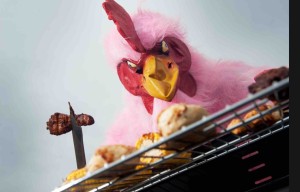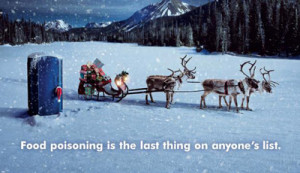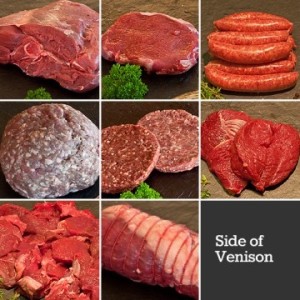Steve Sayer of MeatingPlace, the home of all things meat, has much praise for Food Safety Scotland’s pink chicken advice, which is apparently grounded to “ensure that public information and advice on food safety, standards, and  nutrition are accurate while being consumer-focused. It’s obvious that the FSS plucked the pink chicken mascot to warn Scottish consumers about the possibility of getting sick by consuming seemingly under-grilled/cooked chicken that’s still pink internally.
nutrition are accurate while being consumer-focused. It’s obvious that the FSS plucked the pink chicken mascot to warn Scottish consumers about the possibility of getting sick by consuming seemingly under-grilled/cooked chicken that’s still pink internally.
“However, the only exception was the insistence that the internal color of properly grilled chicken should never be pink.
“The USDA has long stated that reaching the internal temperature of 165 degrees F., (by measuring at the thickest part of the chicken) will kill pathogens and is safe to consume. The USDA has also claimed that the internal coloring is not always an accurate indicator whether chicken is properly cooked or grilled, which includes, you guessed it, the color pink.
“Don’t get me wrong, I think the Scot’s pink message bird is rather clever and its intent admirable, as it could very well lessen the amount of people undercooking their summer grilled chicken. But the fact remains it’s not completely accurate.”
It’s a f*ucking pink chicken and it’s wrong.
So how can anything else this science-based organization say be accepted as accurate?
Go with the data or go home.
Waste of money.










